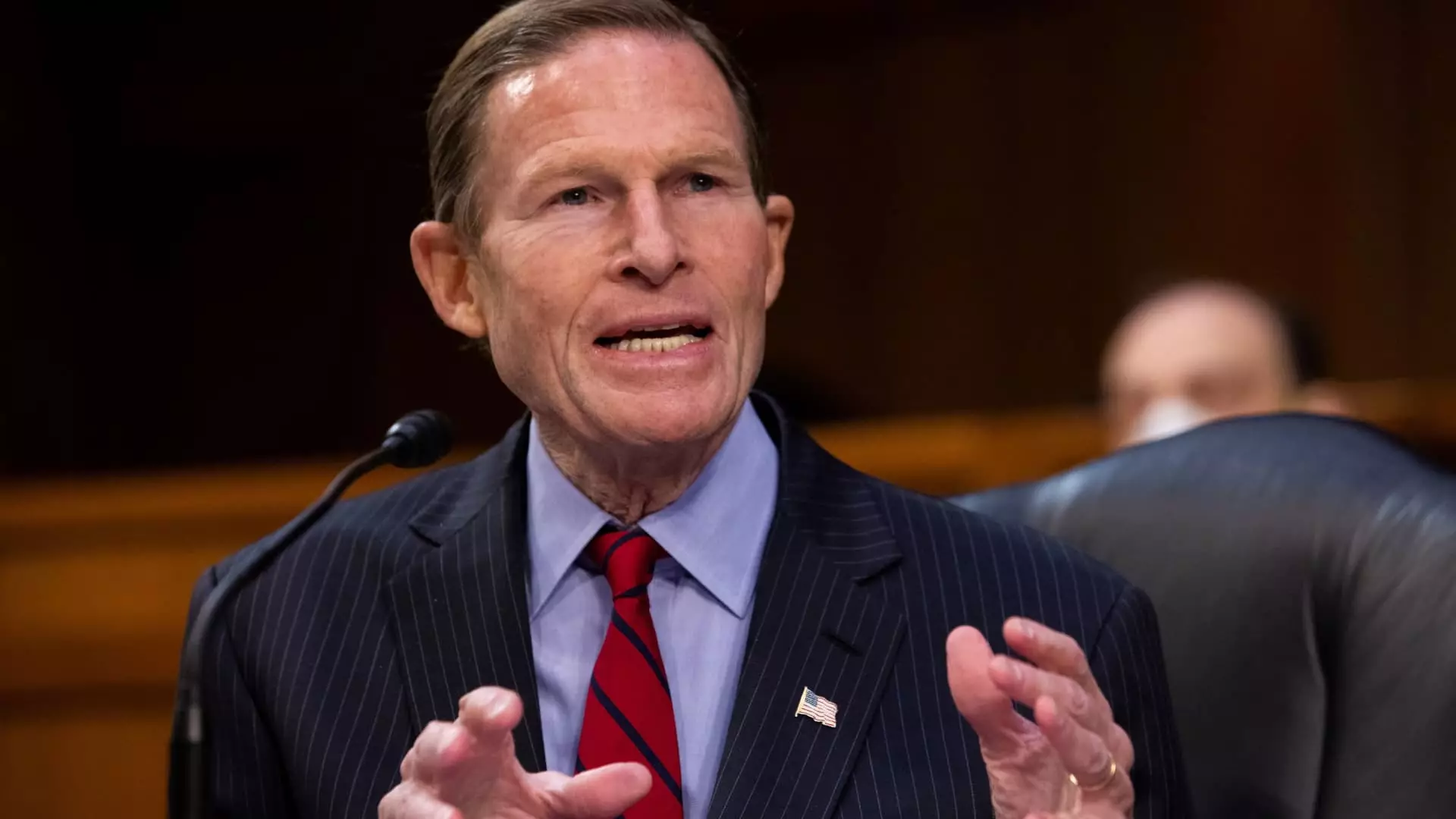The recent developments surrounding Visa’s partnership with Elon Musk’s social media entity, X (formerly Twitter), have raised alarm bells. Senator Richard Blumenthal’s scrutiny of this arrangement is more than just political grandstanding; it highlights genuine concerns about the intersection of technology, finance, and governance. In an age where the digital landscape does not just host conversations but also increasingly facilitates transactions, we are mandated to closely examine the motives behind significant partnerships such as this one. One cannot help but feel a sense of dread knowing that a renowned payments network is entangling itself with a platform fraught with issues like misinformation, bots, and hate speech.
The Role of Government Efficiency Gone Wrong
Senator Blumenthal’s concerns about Musk’s “Department of Government Efficiency” uncover a paradox. On one hand, there’s the promise of a streamlined, innovative approach to government and services. On the other hand, Musk’s moves to diminish the power of watchdog agencies such as the Consumer Financial Protection Bureau (CFPB) indicate a troubling trend toward a lack of regulation. The very authority that would oversee the financial operations on X, including a new digital wallet, has been stripped of its power. This raises serious questions about who benefits when such consumer protections are weakened.
More troubling is the idea that a platform, ripe for scams and illicit activities, could gain the means to process payments without adequate oversight. Does Visa genuinely believe it can ethically align itself with a business model that could capitalize on consumer vulnerabilities? In light of Blumenthal’s letter, it’s evident that many believe this collaboration could pose severe risks to the financial integrity of consumers navigating the online world.
Musk’s Controversial Reputation
With Musk’s controversial history of behavior—from promoting unverified claims to damaging existing institutions—the legitimacy of X’s financial ambitions must be questioned. Can we trust a corporation to operate within the financial sector when it has been historically associated with such reckless conduct? A crucial part of Visa’s integrity involves ensuring their platform is not a playground for fraud. However, with X’s unfortunate reputation, one must wonder how effective Visa can be in preventing scams and financial crime when its partner is embroiled in questionable practices.
Musk’s tactics, especially in the digital realm, have shown an affinity for bending rules and manipulating systems for personal or corporate gain. Aligning with an entity that has, arguably, a vested interest in undermining consumer protection only introduces conflict and risks degradation in the standards that serve society.
Visa’s Legal and Ethical Obligations
From a compliance standpoint, Visa shoulders the immense responsibility of upholding safety and ethics within its payment processing. Blumenthal’s queries on Visa’s plans concerning compliance with regulations like anti-money laundering create a foundation for accountability. It is not merely about whether Visa can turn a profit on this venture; the company bears a moral imperative to safeguard its users.
Yet, what oversight will exist when the driving force behind X seeks to undermine the regulatory bodies charged with protecting consumers? This significant concern raises further doubts about whether Visa can adequately navigate its obligations when they are entangled with a partner that may operate on the fringes of legal and ethical norms.
Public Scrutiny and the Power of Voice
While the partnership has evaded public attention until now, Blumenthal’s actions signify a much-needed examination of the relationship between technology companies and financial services. Consumers should wield voices of scrutiny over their financial transactions and the platforms through which they are conducted. As we continue to delve deeper into the complexities of modern digital economies, we must remain vigilant about alliances that, although seemingly beneficial, may ultimately harm everyday users.
Ultimately, the questions posed by lawmakers and watchdogs about Visa’s dealings with X should not just fade into the background noise of the news cycle. The potential consequences of this partnership are not just a regulatory hurdle; they represent a significant shift in how financial services could intertwine with the chaotic realms of social media. In a world that becomes ever more intertwined, it is crucial to challenge these developments and demand transparency, accountability, and ethical conduct at every level.

